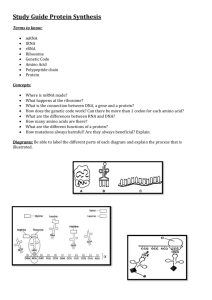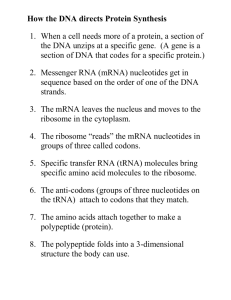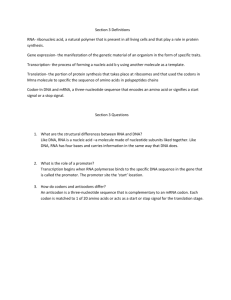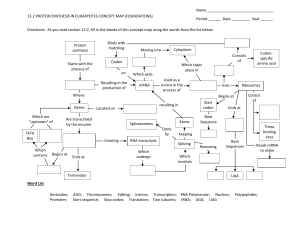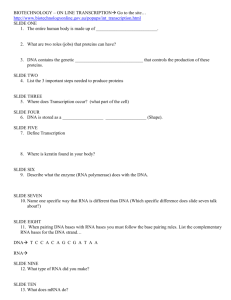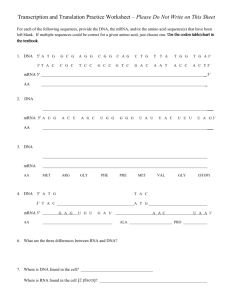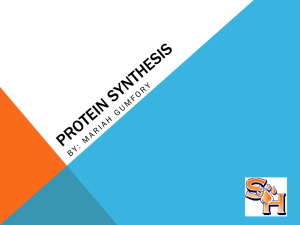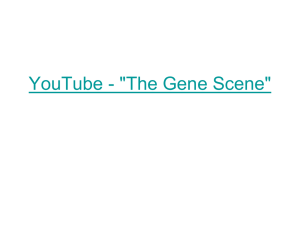File - Follett Science
advertisement
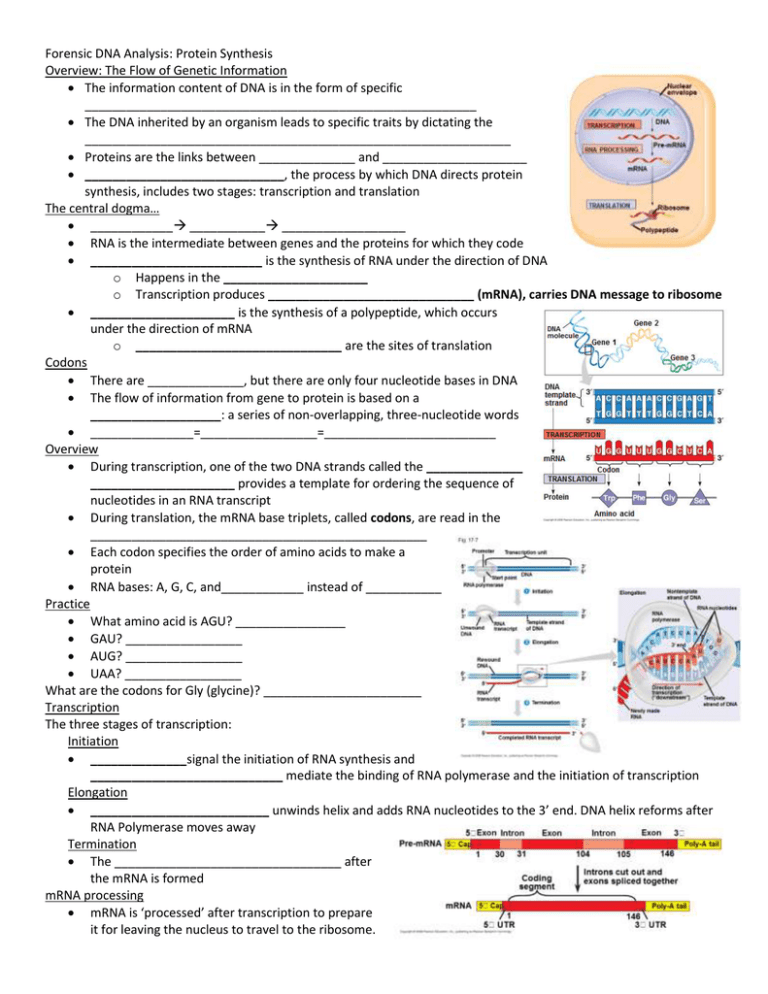
Forensic DNA Analysis: Protein Synthesis Overview: The Flow of Genetic Information The information content of DNA is in the form of specific _________________________________________________________ The DNA inherited by an organism leads to specific traits by dictating the ______________________________________________________________ Proteins are the links between ______________ and _____________________ _____________________________, the process by which DNA directs protein synthesis, includes two stages: transcription and translation The central dogma… ____________ ___________ __________________ RNA is the intermediate between genes and the proteins for which they code _________________________ is the synthesis of RNA under the direction of DNA o Happens in the _____________________ o Transcription produces ______________________________ (mRNA), carries DNA message to ribosome _____________________ is the synthesis of a polypeptide, which occurs under the direction of mRNA o ______________________________ are the sites of translation Codons There are ______________, but there are only four nucleotide bases in DNA The flow of information from gene to protein is based on a ___________________: a series of non-overlapping, three-nucleotide words _______________=_________________=_________________________ Overview During transcription, one of the two DNA strands called the ______________ _____________________ provides a template for ordering the sequence of nucleotides in an RNA transcript During translation, the mRNA base triplets, called codons, are read in the _________________________________________________ Each codon specifies the order of amino acids to make a protein RNA bases: A, G, C, and____________ instead of ___________ Practice What amino acid is AGU? ________________ GAU? _________________ AUG? _________________ UAA? _________________ What are the codons for Gly (glycine)? _______________________ Transcription The three stages of transcription: Initiation ______________signal the initiation of RNA synthesis and ____________________________ mediate the binding of RNA polymerase and the initiation of transcription Elongation __________________________ unwinds helix and adds RNA nucleotides to the 3’ end. DNA helix reforms after RNA Polymerase moves away Termination The _________________________________ after the mRNA is formed mRNA processing mRNA is ‘processed’ after transcription to prepare it for leaving the nucleus to travel to the ribosome. o o It receives a _____________ and _________________ to the 3’ end Parts of the mRNA transcript are removed (___________) Translation The three stages of translation: Initiation _______________________________________________ and moves along it until it reaches a start codon (________) Elongation _______________________ (transfer) brings _____________________________________and adds them 1 by 1 based on the mRNA sequence Termination Codons (3-bases) are read and amino acids are added until the ribosome reaches a ______________________ (UGA, UAA, UAG) http://www.youtube.com/watch?v=5bLEDd-PSTQ Mutations ________________________________________ are changes in the genetic material of a cell or virus _____________________________________ are chemical changes in just one base pair of a gene Types of Point Mutation A ______________________________ replaces one nucleotide with another pair __________________________ have no effect on the amino acid produced by a codon (codes for the same amino acid) ___________________________________ still code for an amino acid, but not the right amino acid ____________________________________________ change an amino acid codon into a stop codon, nearly always leading to a nonfunctional protein ____________________________ and __________________________ are additions or losses of nucleotide pairs in a gene (changes the reading frame)

